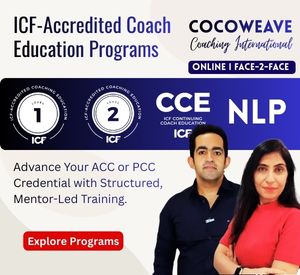Executive job transitions can be both exhilarating and difficult to navigate. It takes careful planning and preparation to adjust to new responsibilities and expectations, whether it’s a promotion, a new leadership position, or a change of industry. Here are some of the most effective tactics for thriving in new positions and navigating career transitions:
- Self-Assessment and Goal Setting: It’s important to do a comprehensive self-evaluation before beginning a job move. Think about your talents, abilities, principles, and interests. Establish your long-term intentions and goals for your career. This introspection will give you clarity and direct your decision-making throughout the shift.
- Research and Networking: Learn as much as possible about the new position or sector you are entering. To fully grasp the trends, obstacles, and opportunities facing the market, conduct extensive research. Connect with industry experts to learn more and develop relationships. Participating in industry-specific groups and attending pertinent events can lead to new opportunities.
- Skill Development: Determine the knowledge and abilities necessary for success in your new position. Determine any skill shortages and invest in filling them through training courses, workshops, or certifications. Look for mentors or coaches who can offer direction and assistance in acquiring the required competencies.
- Personal Branding: Create a strong personal brand consistent with your professional objectives and the demands of your new position. Update your LinkedIn page, CV, and other professional profiles to highlight your accomplishments, experience, and distinctive value proposition. In a crowded job market, having a solid personal brand will help you stand out and attract appropriate prospects.
- Get Advice and Support: Hire a mentor or executive coach who focuses on job changes. Through the process, their knowledge and experience can offer insightful advice and accountability. They can assist you in creating a transition strategy, overcoming obstacles, and accelerating your performance in the new position.
- Flexibility and Adaptability: Be willing to accept change and mold yourself to new circumstances. Understand that every change in a person’s job has its own set of difficulties and learning curves. Have a growth attitude and see every challenge as an opportunity for career and personal progress. Developing relationships with coworkers, stakeholders, and team members at your new organization will take time and effort. Actively look for chances to work together, comprehend their viewpoints, and build trust. Good relationships will not only make the transfer easier but will also make it easier for you to fit in with the company culture.
- Effective Communication: In your new position, perfect the art of effective communication. Recognize the demands of various stakeholders and modify your communication approach accordingly. To ensure clarity and alignment, actively listen, ask questions, and seek feedback. Your credibility as a leader will be established through clear and straightforward communication.
- Embrace Constant Learning: Look for opportunities to learn and develop constantly. Stay up-to-date on business trends, technology developments, and industry best practices. Participate in professional development activities, attend conferences, and join organizations related to your sector. You will remain flexible and prepared for the future if you adopt a philosophy of continual learning.
- Self-care and Resilience: Taking on a new career can be taxing and stressful. Put your well-being and self-care first to maintain your resilience. Build a support system of friends and family, engage in activities that renew you, and practice self-reflection. You’ll be able to perform at your best and respond to new difficulties more skillfully if you take care of yourself.
Changing careers as an executive presents excellent prospects for personal development, fulfillment, and success. Leaders can successfully negotiate career changes and thrive in their new jobs by adhering to these guidelines and engaging in self-assessment, research, skill growth, and connection-building. Keep in mind that every transition is a special adventure, and embrace the procedure with flexibility and a long-term success mentality. To fully realize your potential, start your career change journey with confidence.
Disclaimer
The views and opinions expressed in guest posts featured on this blog are those of the author and do not necessarily reflect the opinions and views of the International Coach Federation (ICF). The publication of a guest post on the ICF Blog does not equate to an ICF endorsement or guarantee of the products or services provided by the author.
Additionally, for the purpose of full disclosure and as a disclaimer of liability, this content was possibly generated using the assistance of an AI program. Its contents, either in whole or in part, have been reviewed and revised by a human. Nevertheless, the reader/user is responsible for verifying the information presented and should not rely upon this article or post as providing any specific professional advice or counsel. Its contents are provided “as is,” and ICF makes no representations or warranties as to its accuracy or completeness and to the fullest extent permitted by applicable law specifically disclaims any and all liability for any damages or injuries resulting from use of or reliance thereupon.
Authors
Post Type
Blog
Audience Type
Coach Educators, Experienced Coaches, External Coaches, ICF Chapter Leaders, Internal Coaches, New Coaches, Professional Coaches, Team and Group Coaches
Topic
Advance Your Coaching Career, Discover - Your Coaching Career
Related Posts
The Power of Active Listening in Meaningful Coaching: Why Active Listening is the Most Essential Coaching Competency
Of all the foundational coaching competencies identified by the International Coaching Federation…
Allyship in Action: Coaching as a Catalyst for Change
Allyship is often framed as a value or an intention. In practice,…
Grace Under Fire: Building Stress Resilience for Coaches and High Achievers
There’s a unique kind of pressure that lives at the intersection of…







